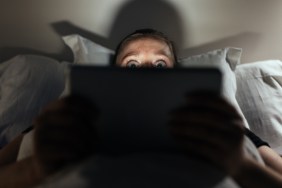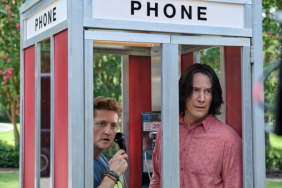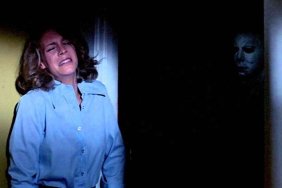The Quiet Ones is a pretty loud movie. Like Hammer’s The Woman in Black before it, director John Pogue’s ode to spooky houses and disproven skepticism has a suspicious tendency to bang around behind camera, or suddenly cut to someone clapping in front of it. But unlike The Woman in Black, this latest horror thriller has something appreciably mad going on between the gotchas: a smart, disturbing mad scientist tale hiding in plain sight behind old school supernatural clichés.
You know this drill: snooty scientists who don’t believe in the supernatural decide to confront the unknown head-on with high tech gadgets (high-tech for the early 1970s anyway) and an objective, “learned” interpretation of everything that goes bump in the night. Said bumps are the work of a troubled young woman named Jane Harper (“Bates Motel” star Olivia Cooke), who claims to be in contact with a mysterious entity that flings objects around the room and likes to burn things.

Holed up in a loft near Oxford, blasting “Cum On Feel The Noize” out the windows for a sleep deprivation experiment, our would-be heroes introduce themselves. There’s Professor Coupland (Jared Harris), who believes that science can explain and cure Jane’s telekinesis. There’s Brian (Sam Claflin), an introverted A/V nerd hired to film the Coupland’s experiments and otherwise stay out of the way. There’s also a free-lovin’ sexpot (Erin Richards) and a true believer Coupland disciple (Rory Fleck-Byrne) who follow their professor’s every command for good grades and what they think good cause. Before long they all have to move themselves into a ramshackle estate to purge Jane of her seemingly psychosomatic possession and fend off the inexplicable phenomena that simply has to have a rational explanation… right?
And yet for all the possession clichés and haunted house schtick, The Quiet Ones isn’t really about the supernatural. Even the title refers to the scientist heroes, not a bunch of silent specters. As Professor Coupland’s experiments become increasingly obsessive and unnecessarily dangerous, both physically and psychologically, the investigators each choose to ignore the possibility that the supernatural is really real, and also that they might be the evil ones either way. A blind belief in science is just as ignorant as a baseless commitment to superstition, and in the end, both can lead to corruption, either overt or quiet.

But while John Pogue’s cast sells their ethical quagmire and Jared Harris in particular seems to be reveling in principled stubbornness (culminating in a wonderful outburst of justified theatricality), he also indeed know how to make The Quiet Ones work on its surface. The eerily dilapidated production design does a lot of the job for him, but his decision to tell half his story from the perspective of Brian’s camera doesn’t hurt either. What could have been a gimmick – a retro found footage fiasco – instead plays like an excuse to let his game cast sell the dread in single unedited takes, a risky gamble that pays off when they prove up to the challenge. Although Pogue frequently caps these slow burns with a literal bang, he earns the right to do so: the scenes that precede them play like a gloriously spooky one-act stage plays.
It shouldn’t be surprising that The Quiet Ones ends with a conventional horror pseudo-ending, the sort of Lovecraftian karmic judgment that typically befalls intellectual heroes with a valuable lesson to learn about not being a smarty-pants. But it’s not trying to reinvent the wheel, it’s just got some nifty spokes. Spooks? Those too. The Quiet Ones is refreshingly straightforward, a stylish, intelligent chiller with an ever so slightly subversive take on a familiar genre.

William Bibbiani is the editor of CraveOnline’s Film Channel and the host of The B-Movies Podcast and The Blue Movies Podcast. Follow him on Twitter at @WilliamBibbiani.





